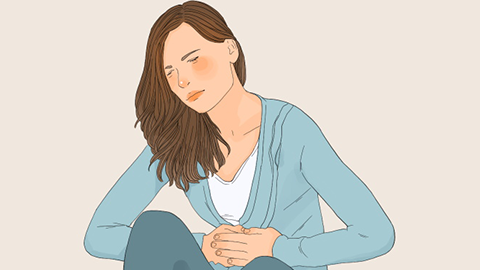What causes abdominal pain with a constant urge to defecate but inability to pass stool, and what should be done about it?
Generally, abdominal pain accompanied by frequent urges to defecate but difficulty passing stool may be caused by imbalanced diet, mental stress and anxiety, irritable bowel syndrome (IBS), proctitis, or intestinal obstruction. Patients can choose appropriate management methods such as lifestyle adjustments, medication, or surgery based on their specific conditions. Detailed analysis is as follows:
1. Imbalanced Diet
Insufficient dietary fiber intake and inadequate fluid consumption can lead to dry, hard stools and slowed intestinal motility. Stool retention irritates the intestinal wall, causing abdominal pain, while hardened feces block the intestines, resulting in constipation. It is recommended to consume more high-fiber foods such as celery and spinach, drink 1500–2000 mL of warm water daily, and develop a regular bowel movement habit.

2. Mental Stress and Anxiety
Chronic psychological stress or sudden episodes of anxiety can disrupt autonomic nervous system function, leading to disordered or spasmodic intestinal contractions, which cause abdominal pain. Abnormal intestinal motility can also result in difficulty passing stool. Engaging in 30 minutes of moderate exercise daily, such as jogging or yoga, practicing deep breathing or meditation to relieve stress, and ensuring adequate sleep can help improve symptoms.
3. Irritable Bowel Syndrome (IBS)
Increased intestinal sensitivity can lead to smooth muscle spasms and abdominal pain when stimulated. Disrupted intestinal motility further contributes to difficulty in defecation. Under medical guidance, medications such as pinaverium bromide tablets, lactulose oral solution, and bifidobacterium triple viable capsules may be used. Avoiding stimulants like coffee and strong tea is also recommended.
4. Proctitis
Inflammation of the rectal mucosa causes congestion and swelling, triggering the defecation reflex and creating a persistent urge to pass stool. Inflammatory disruption of intestinal function leads to both abdominal pain and difficulty defecating. Under medical supervision, drugs such as mesalazine enteric-coated tablets, sulfasalazine enteric-coated tablets, and compound glutamine enteric-coated capsules may be prescribed. Keeping the anal area clean and dry is also important.
5. Intestinal Obstruction
Blockage of the intestinal tract prevents the passage of contents, causing intestinal distension and stimulation of the peritoneum, leading to abdominal pain. Abnormal peristalsis above the obstruction site results in urgent but ineffective attempts to defecate. Immediate medical attention is required. Surgical interventions such as adhesion lysis or bowel resection with anastomosis may be necessary. Early ambulation after surgery helps restore intestinal function.
In daily life, it's important to pay attention to bodily signals. Mild discomfort may be managed initially through dietary and emotional adjustments. However, if symptoms persist for more than three days or are accompanied by fever or rectal bleeding, prompt medical evaluation is essential. Maintaining a regular routine, avoiding overeating, and reducing intake of spicy and greasy foods can help sustain normal intestinal motility and reduce discomfort.









